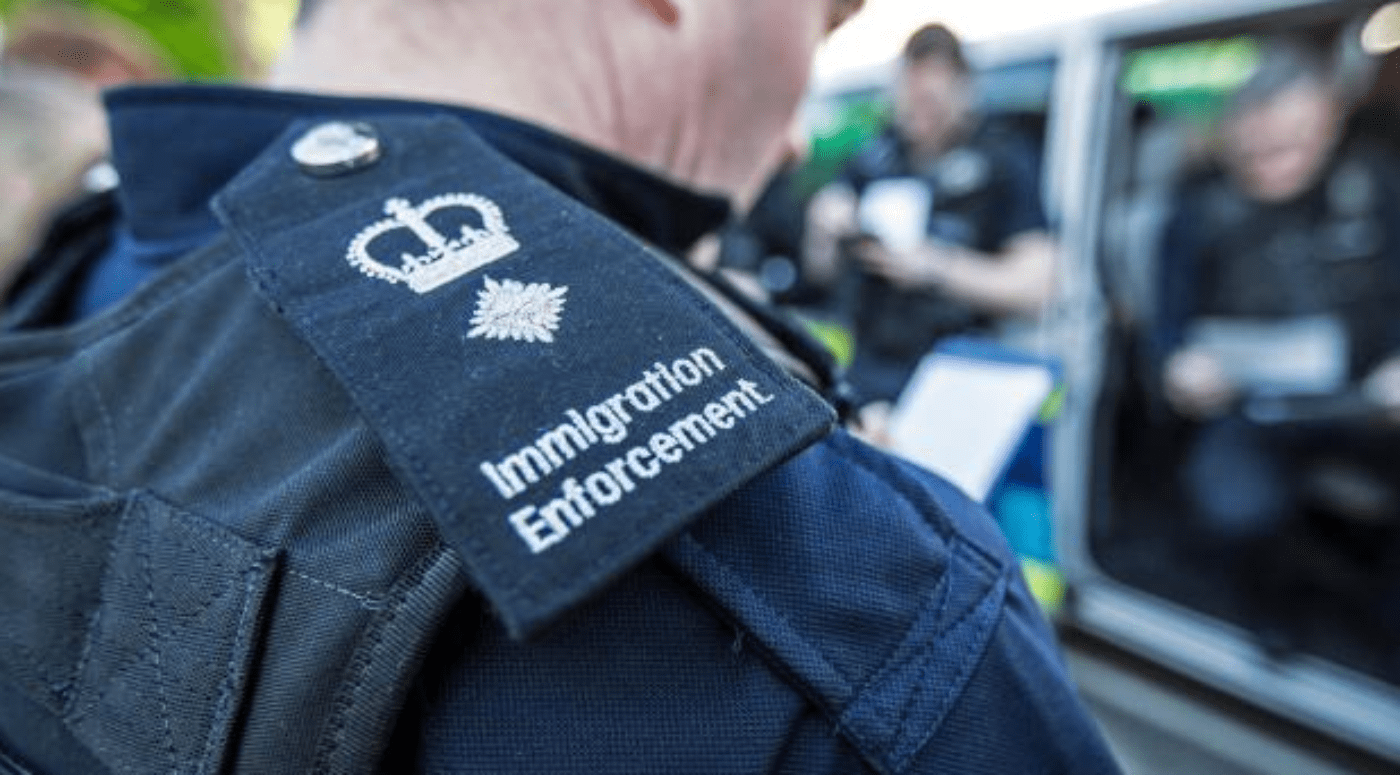

If you have been accused of assisting someone to enter the UK illegally or of harbouring a person without proper immigration status, you are likely feeling anxious and confused about what lies ahead. You may be questioning whether your actions were truly criminal, what penalties you might face, and whether imprisonment is inevitable. This article seeks to provide you with a comprehensive understanding of offences involving assisting illegal entry and harbouring persons, how courts approach sentencing in these cases, the circumstances under which suspended sentences may be available, and the practical steps you can take to achieve the best possible outcome.
What is assisting illegal entry or harbouring persons?
Assisting illegal entry and harbouring persons are offences under the Immigration Act 1971. Section 25 of the Act creates several related offences.
- Section 25(1) makes it an offence to assist a person who is not a British citizen to enter the UK in breach of a deportation order or without leave to enter when leave is required.
- Section 25(2) makes it an offence to knowingly harbour someone who has entered or remained in the UK unlawfully, or to conceal such a person from immigration authorities.
Assisting illegal entry can involve a wide range of conduct. It includes physically transporting individuals into the UK, providing false documents to facilitate entry, arranging fraudulent marriages to circumvent immigration controls, providing financial assistance for illegal entry, or providing information and guidance that enables unlawful entry. The offence does not require commercial motivation or financial gain; assistance provided out of compassion, family loyalty, or friendship can still constitute the offence.
Harbouring involves providing accommodation, shelter, or other assistance to someone you know or have reasonable cause to believe is in the UK without proper immigration status. This might include allowing someone to live in your home, providing them with employment, or helping them to avoid detection by authorities. The offence requires knowledge or reasonable grounds to suspect that the person being harboured lacks lawful status.
What are the usual sentences for assisting illegal entry or harbouring persons?
The maximum sentence for assisting unlawful immigration under section 25 of the Immigration Act 1971 is 14 years’ imprisonment. For harbouring offences, the maximum is 10 years’ imprisonment. However, actual sentences vary enormously depending on the nature and scale of the offending.
Large-scale organised people smuggling operations involving multiple individuals, commercial motivation, dangerous methods of entry, or exploitation of vulnerable migrants attract substantial custodial sentences, often in the range of 4 to 10 years or more for organisers and key participants. These cases often involve boats crossing the English Channel, lorries transporting concealed individuals, or sophisticated document fraud operations.
Mid-level offending involving a small number of individuals, some planning, and modest financial gain typically results in sentences of 1 to 4 years’ custody. These might involve arranging entry for a few family members or acquaintances, providing false documents, or operating small-scale smuggling ventures.
At the lower end, assisting a single family member or friend to enter or remain in the UK, where the motivation was compassionate rather than financial, the methods were not dangerous, and the defendant was not part of a wider criminal enterprise, may result in suspended sentences, community orders, or even non-custodial disposals.
What is a suspended sentence and how does it work?
A suspended sentence is a custodial sentence that you serve in the community rather than in prison, subject to compliance with specific conditions. The court determines the length of imprisonment appropriate for your offence (up to 2 years) and sets a suspension period (between 6 months and 2 years) during which you must comply with requirements imposed by the court.
These requirements may include performing unpaid work, attending rehabilitation programmes, observing a curfew monitored electronically, residing at a specified address, or engaging in treatment for mental health or substance abuse issues. You must also avoid committing further offences during the suspension period.
If you fulfil all requirements and remain law-abiding throughout the suspension period, the sentence expires and you do not go to prison. However, if you breach any condition or are convicted of another offence, the court will ordinarily activate the suspended sentence, requiring you to serve the original custodial term in addition to any penalty for the breach or new conviction.
Can assisting illegal entry or harbouring persons result in a suspended sentence?
Whether suspension is available depends on the scale and nature of your involvement, your motivation, and your personal circumstances.
If you assisted a single family member or close friend to enter or remain in the UK, your motivation was compassionate rather than financial, you played a limited role, the methods were not dangerous, you have no previous convictions, and you present strong personal mitigation, a suspended sentence is a realistic prospect. Courts recognise that many people commit these offences out of loyalty to family or humanitarian concern rather than criminal intent, and sentences reflect this reality.
Conversely, if you were involved in a commercial people smuggling operation, assisted multiple individuals for financial gain, used dangerous methods such as unseaworthy boats or concealed compartments in vehicles, or exploited vulnerable migrants, immediate custody is highly likely. The more organised, commercial, and dangerous the operation, the less likely suspension becomes.
What factors do courts consider when deciding on a suspended sentence for assisting illegal entry or harbouring persons?
Judges evaluate numerous factors when determining whether to suspend a sentence for these offences.
- The number of individuals involved is significant. Assisting a single person is treated far less seriously than involvement in operations moving dozens or hundreds of people.
- Your motivation is critical. Assistance motivated by family ties, friendship, or humanitarian concern is viewed more leniently than conduct motivated by financial gain. Courts recognise that many defendants act out of loyalty or compassion rather than criminal intent.
- The methods used matter considerably. Dangerous methods that place migrants’ lives at risk, such as unseaworthy vessels, poorly ventilated vehicles, or routes involving physical danger, are treated very seriously.
- Exploitation of migrants aggravates the offence significantly. If you charged extortionate fees, subjected migrants to poor conditions, deceived them about the risks or arrangements, or otherwise took advantage of their vulnerability, sentences will be substantially longer.
- Your role within any operation is crucial. Organisers, recruiters, and key facilitators receive the longest sentences. Drivers, document providers, or individuals offering accommodation play lesser but still significant roles.
- Aggravating factors include previous convictions, particularly for immigration offences or dishonesty, involvement of children in the operation, obstruction of immigration enforcement, or use of forged documents. Mitigating factors include early guilty pleas, genuine remorse, cooperation with authorities, and evidence of rehabilitation.
- The court assesses your likelihood of reoffending. Evidence that you understand the seriousness of your conduct, have severed contact with any criminal associates, and are committed to complying with immigration laws supports suspension.
How serious does the offence have to be for a prison sentence for assisting illegal entry or harbouring persons?
Immediate imprisonment is typical for commercial people smuggling operations, cases involving multiple migrants, dangerous methods, exploitation, or sophisticated planning. Organisers and key participants in such operations routinely receive sentences of several years.
At the lower end, one-off assistance to a single family member or friend, motivated by compassion, involving no danger or exploitation, and committed by a defendant with no criminal history, may not cross the custody threshold. Community orders, fines, or suspended sentences are realistic in such cases.
Cases involving modest financial gain, small numbers of individuals, limited planning, and no danger or exploitation fall in the middle range. Whether immediate custody is imposed depends on the balance of aggravating and mitigating factors.
What can I do to improve my chances of getting a suspended sentence for assisting illegal entry or harbouring persons?
Achieving a suspended sentence requires careful preparation.
If the evidence against you is strong, pleading guilty at the earliest opportunity is crucial. Early guilty pleas can reduce sentences by up to one-third and demonstrate acceptance of responsibility and genuine remorse.
Cooperate fully with investigators where appropriate. Providing truthful accounts and avoiding attempts to minimise your conduct works in your favour. However, be cautious about providing information that might incriminate others without legal advice.
Demonstrate that your motivation was compassionate rather than commercial. If you acted to help family members or friends and received no payment, emphasise this. Evidence showing you acted out of loyalty or humanitarian concern rather than criminal intent is powerful mitigation.
If you acted under pressure or were exploited, gather evidence supporting this including threatening communications and witness statements. Expert evidence on coercive control can establish reduced culpability.
Demonstrate that you have ceased contact with those involved in the offending. Evidence of stable employment, education, or community involvement shows you are leading a productive, law-abiding life.
Where to get more help
Offences involving assisting illegal entry or harbouring persons carry serious consequences and can be complex to navigate, particularly given the intersection of criminal and immigration law. The team at Stuart Miller Solicitors has successfully represented numerous clients facing immigration-related criminal charges. We recognise the anxiety and uncertainty you are experiencing and are committed to providing expert, compassionate representation throughout your case. Get in touch with us today for a no obligation consultation about your situation and options.
OUR COMMITMENTS TO YOU:
-
Responsive
A legal expert will consult you within 24 hours of making an enquiry.
-
Empathetic
We will always treat you with trust, understanding and respect.
-
Specialised
Your case will be handled by an expert who specialises in your type of offence.
-
Proactive
We will take early action to end proceedings as soon as it is practically and legally possible to do so.
-
Engaged
You will be kept updated on your case at all times. We will provide a named contact available to answer your questions.
-
Caring
We understand this is a difficult and stressful time for you and your family. Our team will support you every step of the way.
-
Tenacious
We will never give up on your case. We fight tirelessly to get you the best possible outcome.

